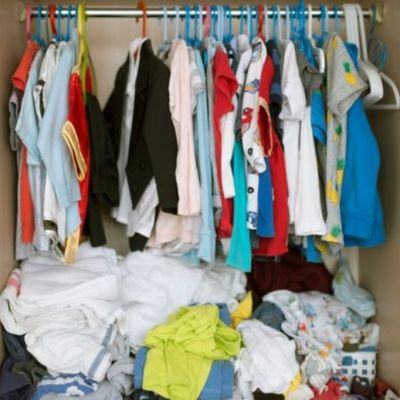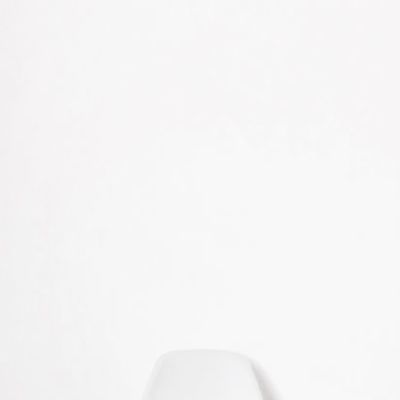'I'm not buying a coffee table': Why forgoing furniture can combat bad habits

Lindsay Miles is the first to admit she’s not naturally tidy. But waking up to a pile of dirty dishes, or never being able to find her keys had become increasingly frustrating.
“I’m the kind of person that is very messy but also really dislikes mess,” says Miles, who blogs at Treading My Own Path.
So Miles set out to change her ways, figuring that decluttering – and having enough storage – would cure her and her husband’s messiness.
But after an entire weekend of decluttering, she could only bring herself to throw out one box of stuff. Luckily, it became easier as she went along, and her wardrobe was pared back from 200 items to 40.
While the clear-out definitely helped, Miles realised it only solved about 80 per cent of the problem.
“I still had bad habits of dumping stuff at the doorway and not putting things where they were meant to go,” she says. “When I had less stuff, it was easier to notice the bad habits.”
Miles and her husband made decisions such as not buying a coffee table, knowing it would inevitably become a dumping ground.
She admits trying to transform old habits is a constant battle. So are there any other strategies messy mortals can adopt to become clean freaks?
Professional organiser Louisa Dyson, of Alice + Albert, helps busy clients sort out their personal lives and homes.
“The majority of my clients are very organised people and tend to be very organised in their life, mainly in their work life and it tends to be at home that things start to fall apart,” she says.
“It’s gotten bigger than Ben Hur – they’ve thought about it too much and it’s just gotten too big and too much to deal with.”
As for the tidiness gene, she believes some people have it and some don’t. “But I definitely think it’s something you can learn if you’re willing to put the effort into it.”
First, get an understanding of how you want to use each area of your home, and how you want to feel in that room, she suggests. From there, it’s about decluttering and designing the space.
“Maybe if you think about a hallway when you come into a house, do you have a hatrack there, is that where your keys go? Do you put your shoes there?”
The old maxim goes that a calm environment equates to a less chaotic mind.
However, clinical psychologist Dr Cindy Nour says there’s not necessarily any truth to that. “Your environment plays some role, but not a huge one when it comes to wellbeing,” she says.
Although the act of tidying, while unpleasant for many of us, may have some benefits, she says.
“It’s not that your experience is pleasurable necessarily, but you may experience a feeling of achievement or a feeling of mastery once you’ve done it, especially if it’s been something you’ve been putting off a little while.”
Avoiding procrastination may be the best way to become tidier, Dr Nour says.
“Usually we procrastinate on chores because they’re not exactly pleasant. We don’t get up in the morning really wanting to do our washing and our tidying up.”
Breaking tasks up into small, manageable goals, having a set routine, enlisting help or rewarding yourself are steps in the right direction, she says.
Miles says being tidy is still a work in progress, but one that’s paying dividends.
“We definitely don’t spend the weekend tidying,” she says. “I know where stuff is – this idea of having a place for everything really helps, there’s nothing worse than not being able to find your keys or your shoes and I used to suffer from that all the time.”
We recommend
We thought you might like
States
Capital Cities
Capital Cities - Rentals
Popular Areas
Allhomes
More










